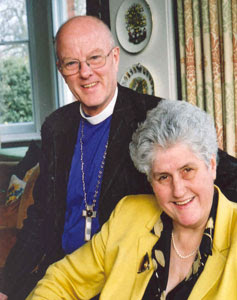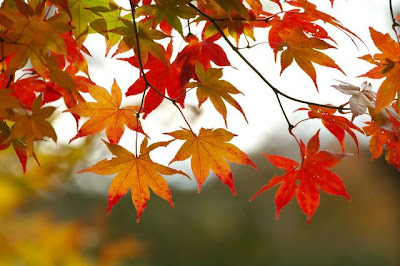
It was several years before Jigme Choder met face-to-face, and he was nothing like I imagined him to be when we met. In my mind's eye he was small, compact, neat and dark-haired, perhaps because his writing (teaching) is so precisely formulated and authoritative, so succinct, and the style so (well, I must say it) - English. In fact he was thin, loose-limbed, with a soft, lived-in face and an odd (to me) Anglo-Californian accent. I thought I would find him in a robe or chuba, but he opened the door to me in a T-shirt and jogging-bottoms. I recall he offered me a lunch choice of chicken pie or cheese pasty! He is a very kind and hospitable man, and I miss him rather, as he has had to 'move on' suddenly and without explanation. Not that I have concerns about his welfare. I think his behaviour is understandably 'monkish' in that he doesn't need to pay as much heed to the expectations others may have on him as the rest of us might who are more driven by convention and conditioning.
I don't know whether patients in US know what 'hospital radio' is. In our state-funded health-service almost all hospitals are provided with hospital radio that broadcasts its own programmes to patients over head-phones: a mixture of music requests, chat-shows, local news etc. It's a British Institution and generally well-loved, run by volunteers. I was invited by hospital radio to talk to the volunteer disc-jockey who fills a Sunday morning slot with 'inspirational' stuff, combining popular music and requests with live discussion on "Buddhism". I offered to do an unscripted chat because I thought it would be spontaneous and more authentic that way, and Brian Dawson (the DJ) was brilliant at posing questions to get to the heart of the matter, so that I enjoyed the discussion very much, although I can't hardly remember anything I said. The interview was recorded, so I imagine some embarrassment may be in store for me when I eventually get to hear the mini-disk!
I do recall that Brian asked me to choose a record, and the only thing I could come up with at short notice was "When Two Worlds Collide" with Jim Reeves, a blast from the past that stirs memories and emotions from when I first fell in love with Berlina my wife, in Africa, in 1971. They say the course of true love never runs straight, and so it was with our own love, which was trans-continental, trans-cultural, trans-racial - and stirred up political troubles for us both, although Berlina's family was amazingly supportive of the match, and of me personally. Jim's ballad of love, drama and heart-ache was very fitting to the circumstances at the time. But we have spent 37 very happy years together, and have three wonderful children, all now grown adults.














 So for 3 days we stayed in the lap of luxury in Kandy a beautiful, holy city set in rolling green hills. The hotel was very friendly but they did play Cliff Richard constantly !! It seemed to emanate from everywhere in the building , secret speakers would suddenly blast out Devil Woman as you opened the wardrobe, Daddy's Home would be warbling through the soap suds in the shower. So after 3 days of Cliffs greatest hits and several mojitos ( Cliff gets better after about the second or third ! ) We reluctantly put our backpacks back on and headed to Pandana, a nearby beach town. We had seen adverts on the television every five minutes depicting all the sexy young things of Sri Lanka having the time of their lives at a music festival there and naturally we just had to get in on the action ! Will even bought himself a new outfit ( well tee shirt. )
So for 3 days we stayed in the lap of luxury in Kandy a beautiful, holy city set in rolling green hills. The hotel was very friendly but they did play Cliff Richard constantly !! It seemed to emanate from everywhere in the building , secret speakers would suddenly blast out Devil Woman as you opened the wardrobe, Daddy's Home would be warbling through the soap suds in the shower. So after 3 days of Cliffs greatest hits and several mojitos ( Cliff gets better after about the second or third ! ) We reluctantly put our backpacks back on and headed to Pandana, a nearby beach town. We had seen adverts on the television every five minutes depicting all the sexy young things of Sri Lanka having the time of their lives at a music festival there and naturally we just had to get in on the action ! Will even bought himself a new outfit ( well tee shirt. )  To our disgust, we realised that we had been a bed bug feast for the last 8 hrs. We screamed and itched our way down the corridor to reception, were the orthodontic ally challenged manager tried to persuade us that we had sunburn. Unconvinced about our joint cases of nocturnal over exposure we made a swift exit.
To our disgust, we realised that we had been a bed bug feast for the last 8 hrs. We screamed and itched our way down the corridor to reception, were the orthodontic ally challenged manager tried to persuade us that we had sunburn. Unconvinced about our joint cases of nocturnal over exposure we made a swift exit.  ) we decided to watch some turtles laying their eggs.
) we decided to watch some turtles laying their eggs.















